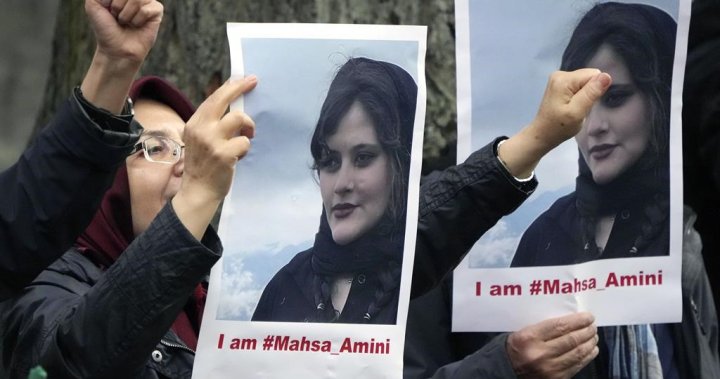
‘Iranian women are furious’ over death of Mahsa Amini, dissident says
Global News
The spur for this latest explosion of outrage was the death this month of 22-year-old Mahsa Amini, who was detained on Sept. 13 for allegedly wearing her hijab too loosely.
The tears come quickly to Masih Alinejad when she talks about the messages she’s received in recent days from women in Iran protesting against their government after a young woman died in police custody over a violation of the country’s strict religious dress code.
They talk about the risks, possibly fatal ones, in facing off against government forces that have a long history of cracking down on dissent. They share stories of saying goodbye to their parents, possibly for the last time. They send videos of confrontations with police, of women removing their state-mandated head coverings and cutting their hair.
“I feel the anger of people right now through their text messages,” Alinejad told The Associated Press in New York City, where the 46-year-old opposition activist and writer in exile has lived since fleeing Iran following the 2009 election.
“They have been ignored for years and years,” she said. “That is why they are angry. Iranian women are furious now.”
The spur for this latest explosion of outrage was the death this month of 22-year-old Mahsa Amini. The young woman was detained on Sept. 13 for allegedly wearing her hijab too loosely in violation of strictures demanding women in public wear the Islamic headscarves. She died three days later in police custody; authorities said she had a heart attack but hadn’t been harmed. Her family has disputed that, leading to the public outcry.
Protests started after her Sept. 17 funeral, and have taken place in more than a dozen cities. According to a tally by The Associated Press based on statements from state-run and semiofficial media, at least 11 people have been killed, while a state TV anchor said the number is even higher. The Iranian government has pushed back, clashing with demonstrators and clamping down on internet access.
Alinejad shares the outrage of the protesters; for more than a decade she has been an outspoken critic of the theocracy that rules the country and its control over women through the required wearing of the hijab and other measures. In 2014, she started My Stealthy Freedom, an online effort encouraging Iranian women to show images of themselves without hijabs.
“Let me make it clear that Iranian women who are facing guns and bullets right now in the streets, they’re not protesting against compulsory hijab like just a small piece of cloth. Not at all,” she said.
